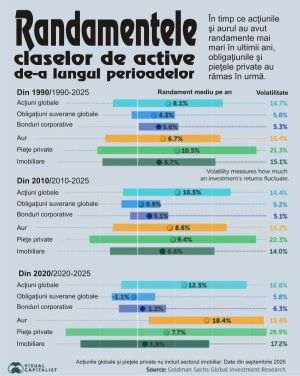
• That happens regardless of whether isolation measures are imposed or not
Online publication of Times of Israel recently published the conclusions of a study by Isaac Ben-Israel, professor at the University of Tel Aviv and president of the National Research and Development Council of Israel, wherein he states that the number of new cases of infection with COVID-19 reaches a peak after approximately 40 days from the detection of the first cases, and after approximately 70 days the number of new cases reaches almost zero.
Particularly important, but also controversial, is the fact that this evolution does not depend on the application of government measures to fight the new coronavirus, such as the complete isolation at home and the shutdown of the economy.
Professor Ben-Israel gave an interview on the matter on an Israeli TV network, and his conclusions have been heavily criticized, directly, by professor Gabi Barbash, hospital director and former general director of the Ministry of Health of Israel.
In terms of the media coverage of the analysis of the Israeli professor, the attacks are easy to justify, given that Isaac Ben-Israel has no medical training, but his study focuses exclusively on the evaluation of the virus evolution in terms of statistics. Times of Israel presents him as a mathematician, analyst and former general in the Israeli army.
His biography from the University of Tel Aviv states that he has studied mathematics, physics and philosophy at the University of Tel Aviv, where he got his Ph. D. in 1988.
Isaac Ben-Israel joined the Israeli Air Force (IAF) in 1967 and retired from the army in 2002 with the position of general-major. He was an operational research director at the IAF and then a research-development in Israel Defense Force (IDF).
Since 2002, Isaac Ben-Israel has been a professor at the University of Tel Aviv, and since 2005 he has been the president of the Israeli Space Agency. Since 2010, professor Ben-Israel is also the president of the Israeli National Research and Development Center of Israel.
In his study, "The end of exponential growth: The decline in the spread of coronavirus", also published on the Times of Israel website, professor Isaac Ben-Israel tries to determine whether the evolution of the number of infections has an exponential nature.
The data reviewed concerns the number of infected people and the number of new daily cases in several countries, including the United States, Great Britain, Sweden, Italy, Israel, Switzerland, France, Germany, Spain, Taiwan and Singapore.
"There is a decline in the number of infections even in countries that haven't isolated the population in their homes or placed it under quarantine, and that decline is similar to that posted in countries that have resorted to isolation and quarantine". The conclusion of professor Ben-Israel is that "an exponential increase of the number of infections with the new coronavirus is out of the question".
In an interview he gave a local news agency, professor Ben-Israel admitted that he doesn't know why the virus has a similar evolution model both in countries that have applied isolation measures, as well as in those that did not apply combat measures.
"Maybe there is a connection to the climate or maybe the virus has its own life cycle", the Israeli professor said.
When asked about the extremely high mortality rate in Italy, of approximately 12%, Ben-Israel said that "the medical system in Italy has its own issues, which have nothing to do with the new coronavirus" and reminded that "a crash was seen in 2017 because of the flu as well".
In his appearance on TV together with doctor Gabi Barbash, professor Isaac Ben-Israel was asked to explain the situation in New York. "The latest data shows that there are no significant deviations from the model for the evolution of the virus" was his response, because "the number of new cases has reached a peak and entered a downward trajectory after approximately 40 days again".
Does the evolution of the cases of infection with the new coronavirus in Romania follow the model indicated in the study of the professor from the University of Tel Aviv? It seems it does, at least according to data from the National Center for the Oversight and Control of Transmissible Diseases (CNCSBT), which publishes daily the status of the infections with the new coronavirus infections across the world (www.cnscbt.ro/index.php/situatia-la-nivel-global- actualizata-zilnic).
The first case was recorded on February 27, 2020, and on April 23rd, 2020, 9710 cases were reported.
That happened after an exponential increase in the first 29 days, which turned into a linear growth in the next 28 days.
Had the exponential growth continued, so far, then we wouldn't have had just 9710 cases, but instead the number would have increased to approximately 1.26 million, i.e. over 130 times greater.
The halting of the exponential growth was stopped by the number of new daily cases on a downward trajectory after reaching a high of 523 cases on April 12th, 2020, as the delay for the doubling of the total number of cases increased from about 5 days to approximately 15 days.
All of these results depend, of course, on the quality of the data posted by the CNCSBT. For instance, in its report of March 29th, 2020 it is shown that the total number of cases was 1292, amid a daily stagnation. On March 30, 2020, the total number of cases was 1760, amid a daily increase of 308 cases, according to the official report, even though the difference is, in fact, of 468 cases.
Even under these circumstances, the official data concerning the evolution of the new coronavirus in Romania shows that the maximum number of new cases was reached after 47 days from its first reporting. Now, we need to wait for another two weeks until the threshold of 70 days is reached.
At the end of his analysis, professor Isaac Ben-Israel launches an appeal for putting an end to the quarantine and isolation measures, but supports the application of measures that will be less costly, such as wearing masks, extended testing, as well as maintaining the ban on public gatherings.
Wouldn't the statistical study of the Israeli professor deserve a more thorough examination, so that our authorities can begin "opening up" before mid-May, as nobody knows what is the threshold beyond which the destruction of some economic sectors will be permanent?











































1. fără titlu
(message sent by cineva on 28.04.2020, 00:41)
Putem spune deja că teoria e din păcate cel puțin inexactă. La noi au trecut deja aproape cele 70 de zile, nu mai vorbim de Italia. Deși la noi s-a potolit aparent viteza de răspândire, nici vorbă să fie aproape dispărut sau măcar în declin clar, iar în Italia e în scădere, dar de aici până la aproape dispărut e drum lung.
1.1. fără titlu (response to opinion no. 1)
(message sent by anonim on 29.04.2020, 11:44)
Foarte corect ! Cum spunea si Pribeagul, la articolul in limba romana, poate raspandirea e mai restransa, in nici un caz nu se poate opri ! Dar, asemenea stiri sunt inghitite de cei "saraci cu duhul", falsii profeti "zburda nestingheriti" in media cu aberatiile lor....